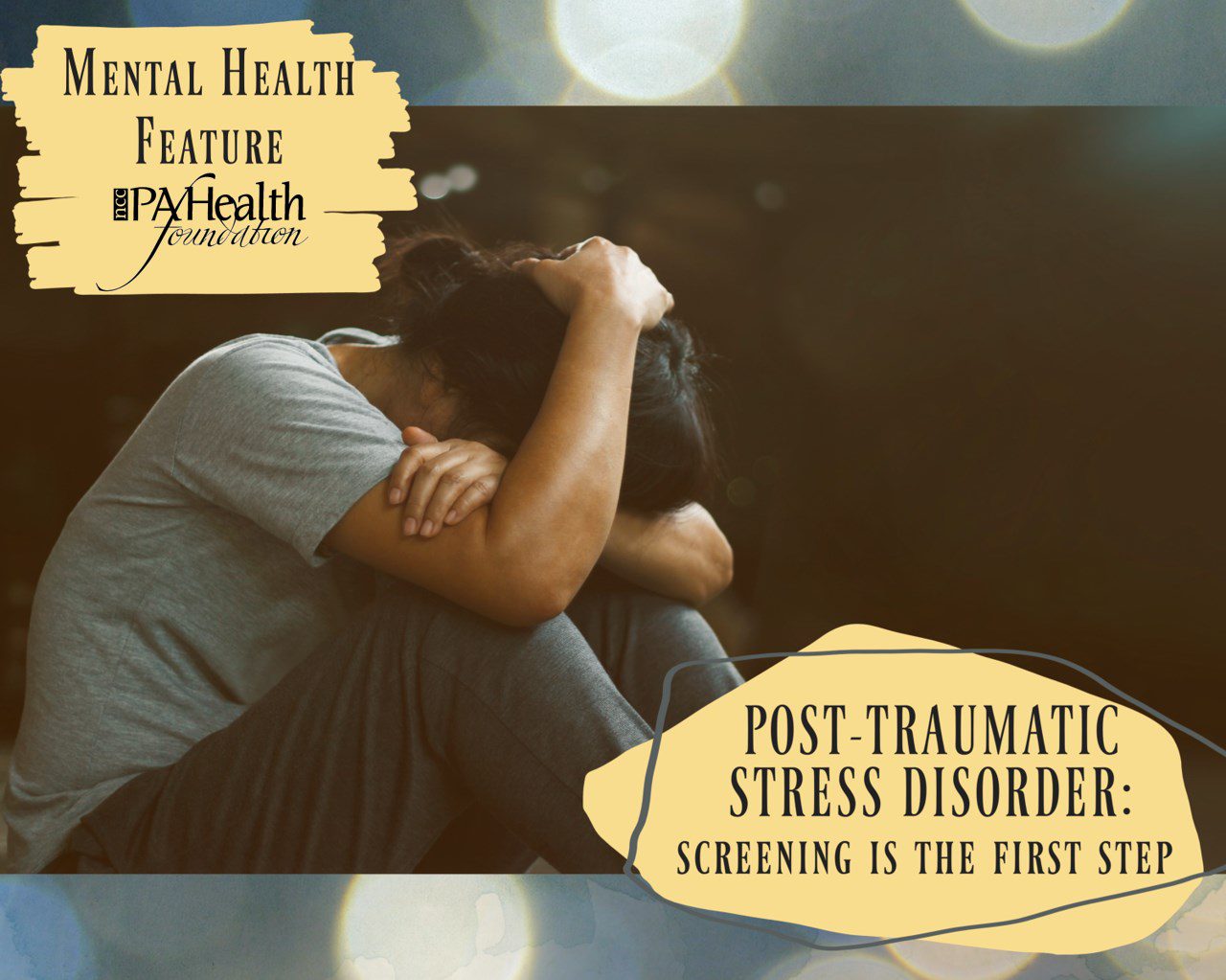Post-Traumatic Stress Disorder: Screening is the First Step
We all probably know someone that has seen combat in war, has been victimized, or has been subjected to or witnessed some other traumatic experience. After such an experience, the mind and body are in shock. As people make sense of what happened and process their emotions, they start to move through the shock. For some though, they continue to relive the events over and over. These people have Post-traumatic Stress Disorder (PTSD) and remain in psychological shock.
Typically, PTSD symptoms will start within a month of the traumatic event; but for some, the symptoms can manifest years later. People with PTSD tend to experience nightmares or flashbacks and may avoid places or things that remind them of the traumatic experience. They also tend to be hyper-vigilant.
Statistics estimate that 7-8 (up to as many as 13) people out of 100 will experience PTSD at some point in their life. It is estimated that 50% of people with PTSD will never reach out for professional help.
While several different types of medications are used to treat PTSD, antidepressants are the most studied. They can help with worry, anger, sadness, and feelings of numbness. Other medications may be used to help with sleep disturbances. Psychotherapy, including Exposure Therapy and Cognitive Restructuring, is another type of PTSD treatment. Getting patients into psychotherapy so they can talk about what happened is important for their overall recovery. In addition, each person should be encouraged to do things on their own to achieve the best possible treatment outcome.
As providers, we need to recognize the changes in our established patients, especially if we know of a recent traumatic experience in their life. Don’t be afraid to ask questions about and screen for PTSD symptoms. The Primary Care PTSD Screen for DSM-5 (PC-PTSD-5) is a 5-item screen that was designed for use in primary care settings and can identify individuals with probable PTSD. The sooner that the signs of PTSD are recognized, the better the outcome for the patient.

Resources:
- https://www.ptsd.va.gov/professional/assessment/screens/pc-ptsd.asp
- National Center for PTSD: Information and tools to help providers with the assessment and treatment of PTSD: https://www.ptsd.va.gov/professional/treat/index.asp
- SAMHSA’s National Helpline: 1-800-622-HELP (4357): Free, confidential, 24/7, 365-day-a-year treatment referral and information service (in English and Spanish) for individuals and families facing mental and/or substance use disorders.
- Contact the NAMI HelpLine (1-800-950-NAMI (6264) or [email protected] for questions about PTSD or for help finding local support and resources.
References:
- Mayo Clinic, Post-traumatic stress disorder (PTSD): https://www.mayoclinic.org/diseases-conditions/post-traumatic-stress-disorder/diagnosis-treatment/drc-20355973
- HelpGuide, Post-traumatic stress disorder (PTSD): https://www.helpguide.org/articles/ptsd-trauma/ptsd-symptoms-self-help-treatment.htm
- National Institute of Mental Health, Post-traumatic stress disorder: https://www.nimh.nih.gov/health/topics/post-traumatic-stress-disorder-ptsd/index.shtml
- PTSD Alliance, What is PTSD? https://www.ptsdalliance.org/about-ptsd/

